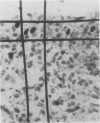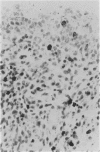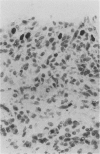Abstract
The experimental model of inflammatory arthritis in the rabbit has been used to study the possible origin of the apparent synovial lining cell hyperplasia. A small amount of 3H-thymidine was injected into the joints and the fate of the labelled cells investigated by autoradiography. At times up to 24 h after the injection, most of the labelled cells occurred in the sub-lining region; this proportionality was reversed when the joints were sampled at later times. These results indicate that at least much of the increase of synovial lining cells may be derived from cells from deeper in the synovial tissue which move to the synovial surface.
Full text
PDF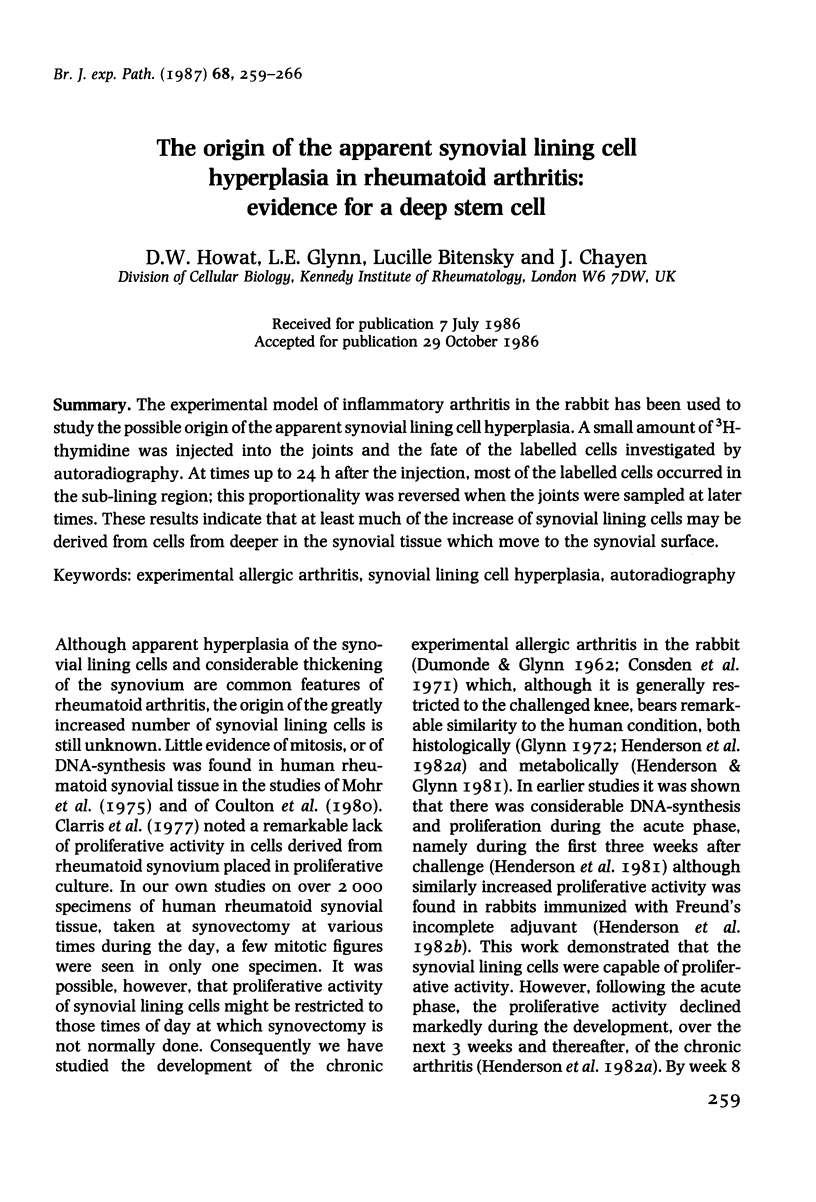
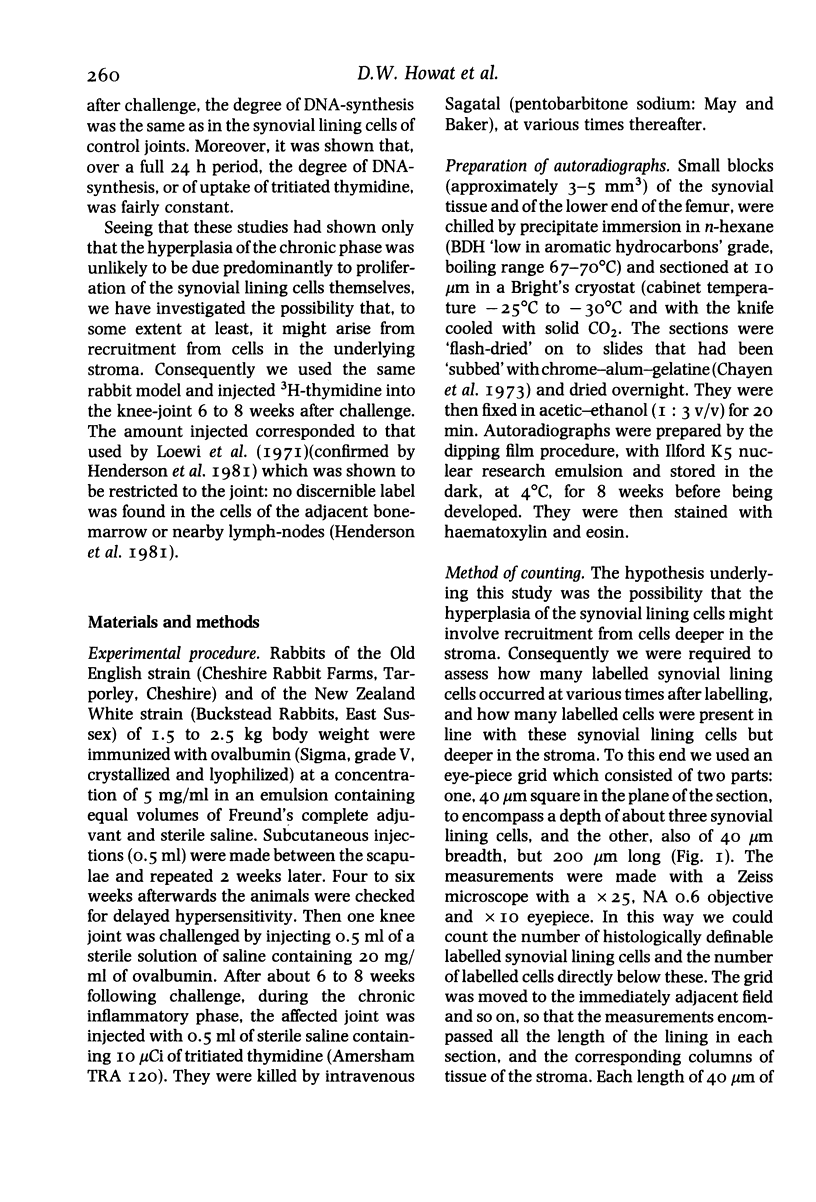
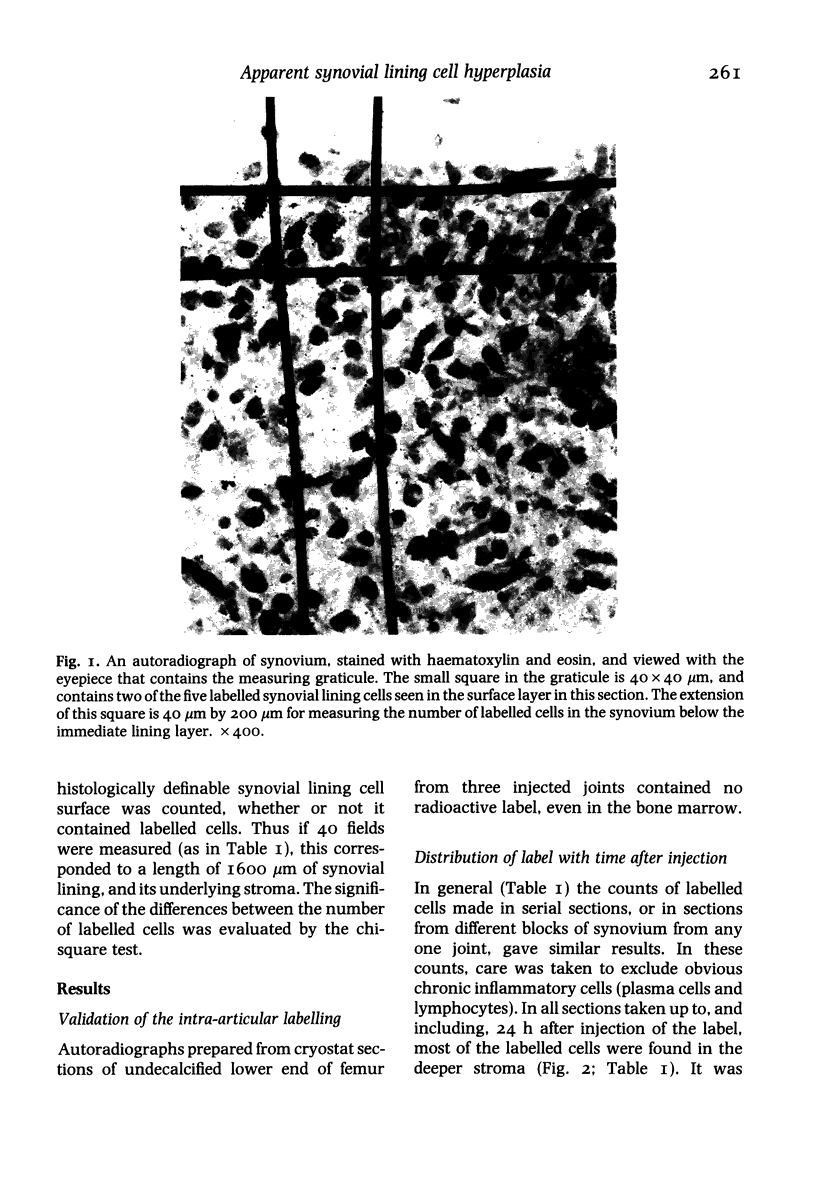
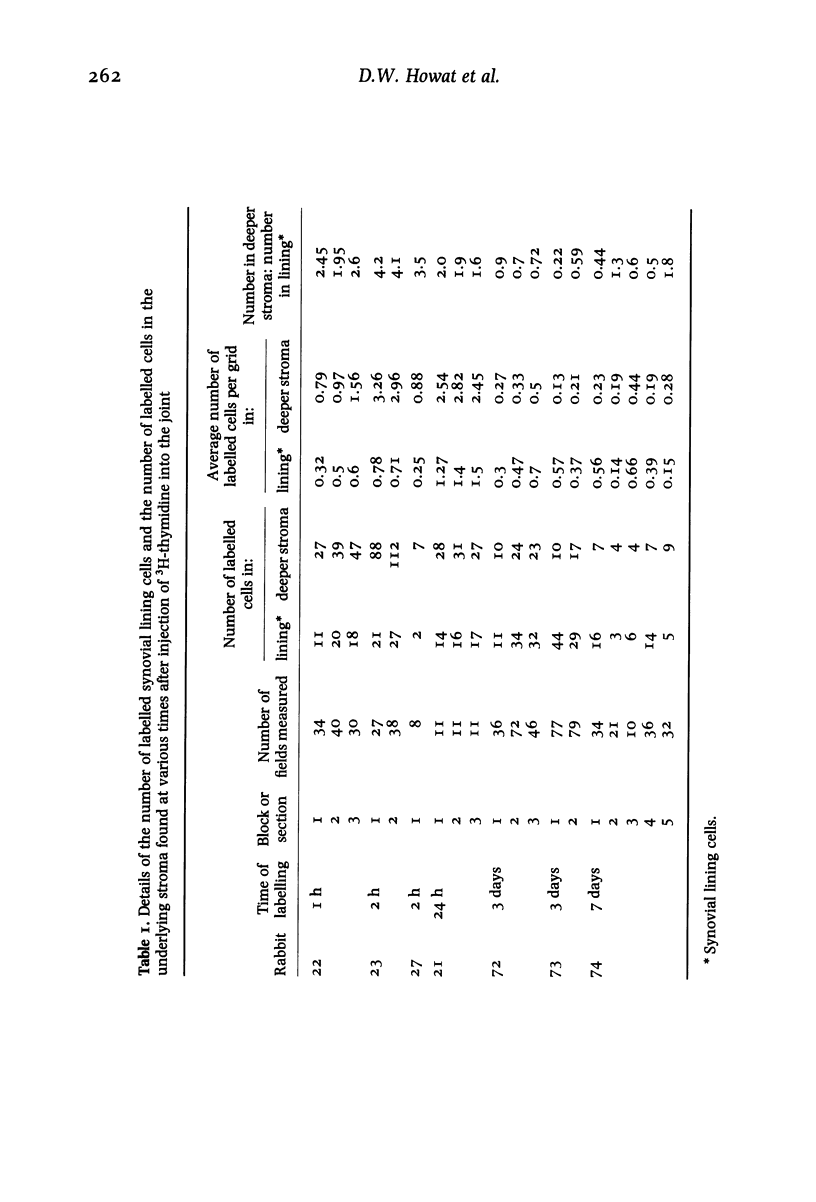
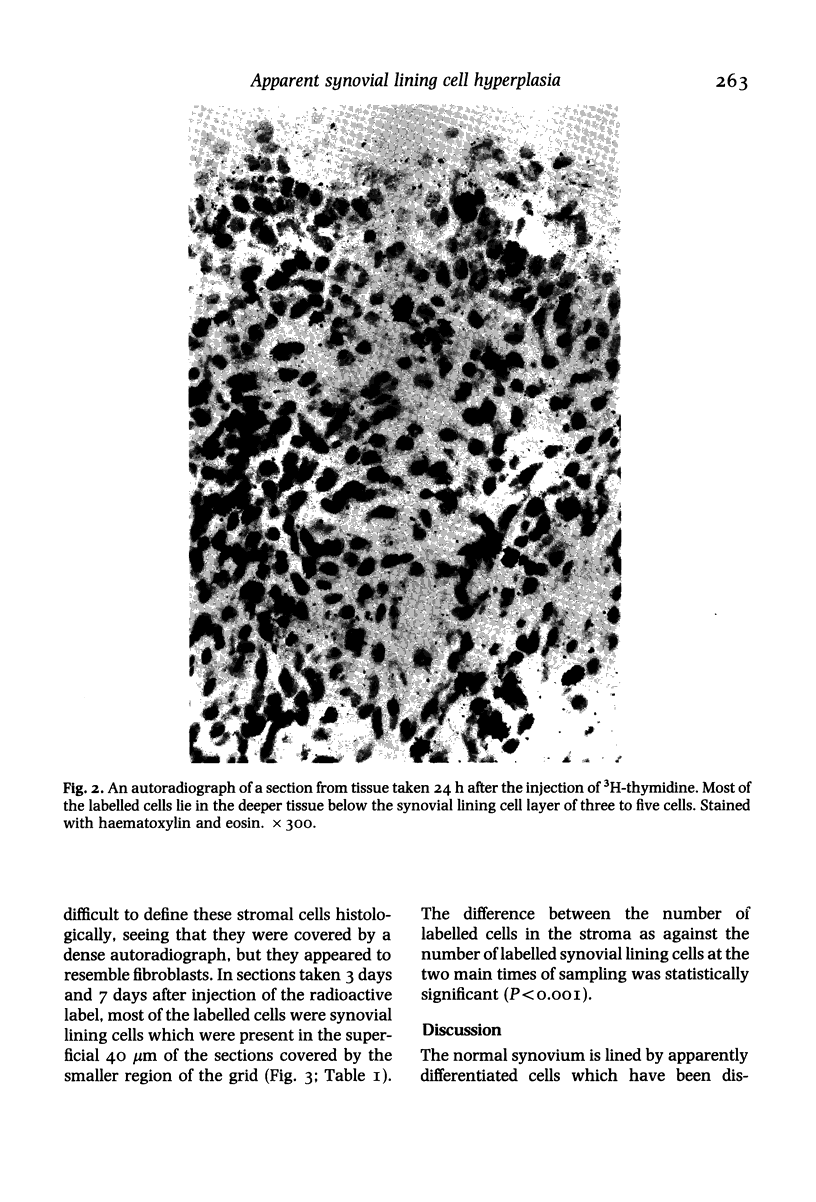
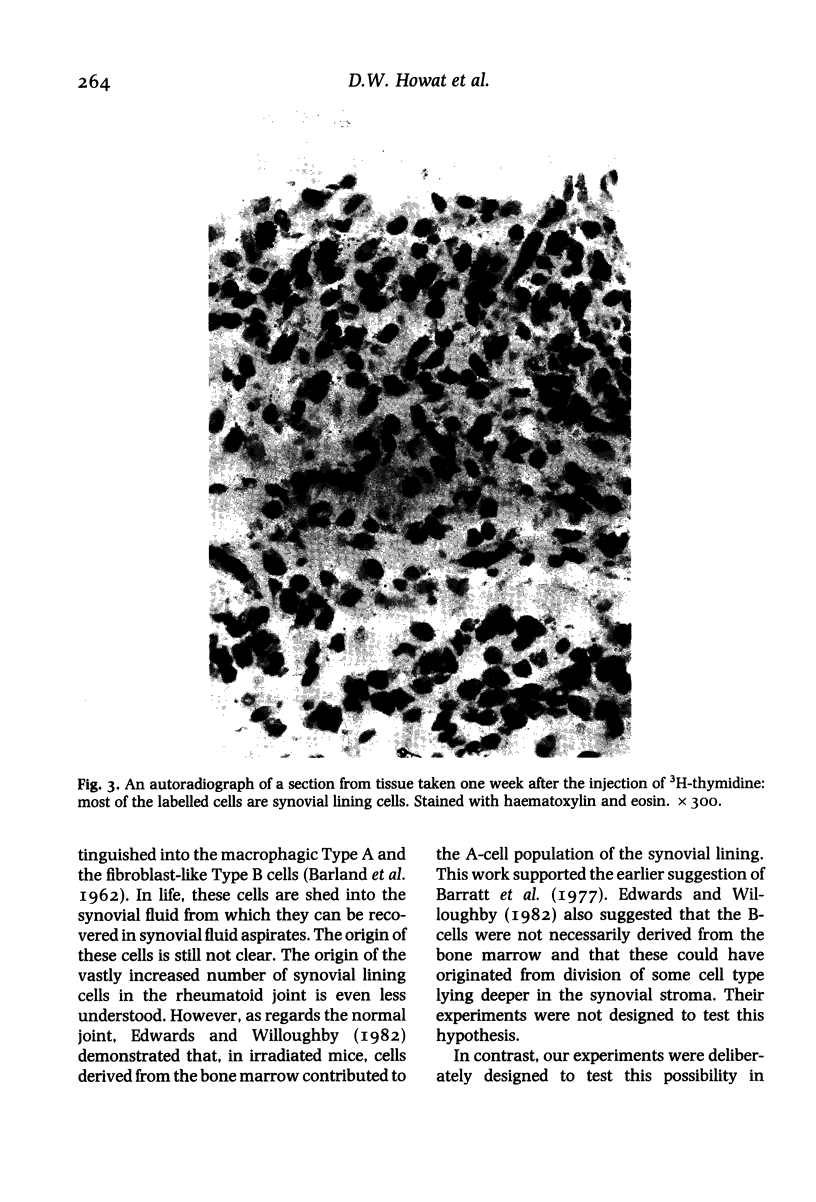
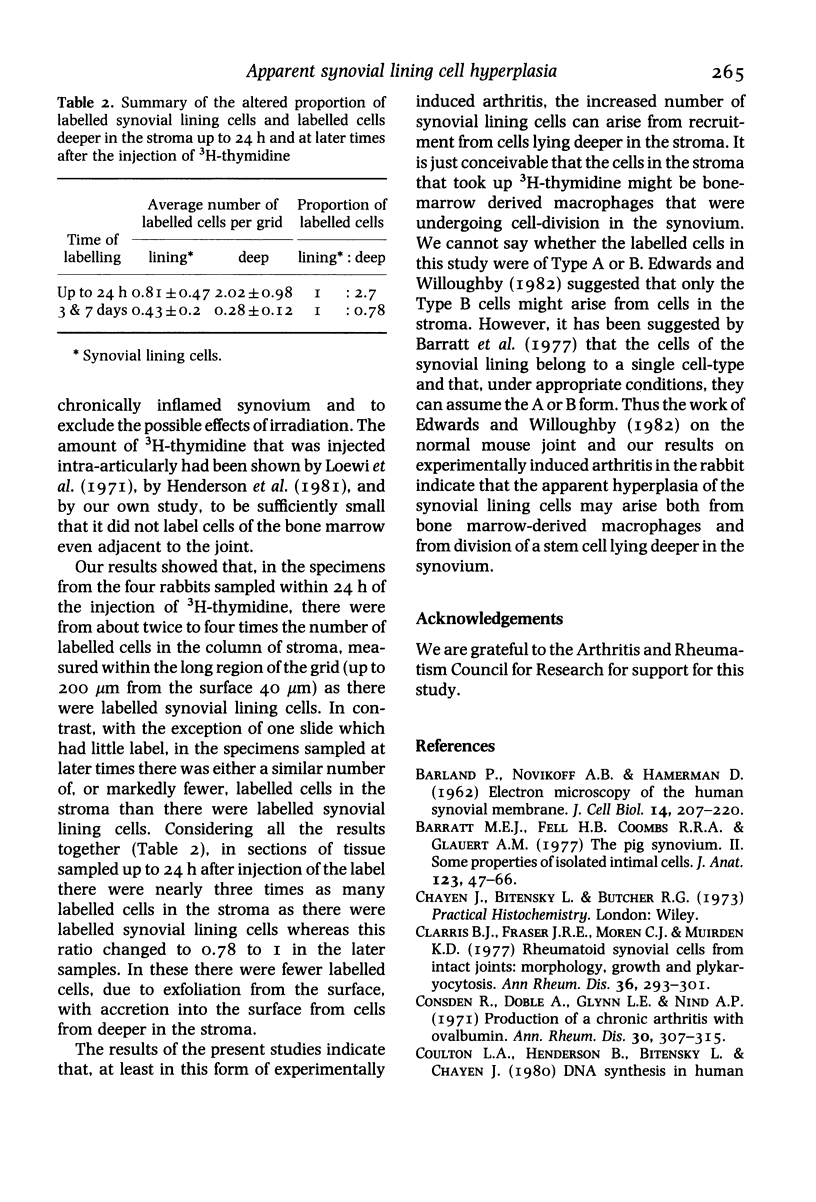
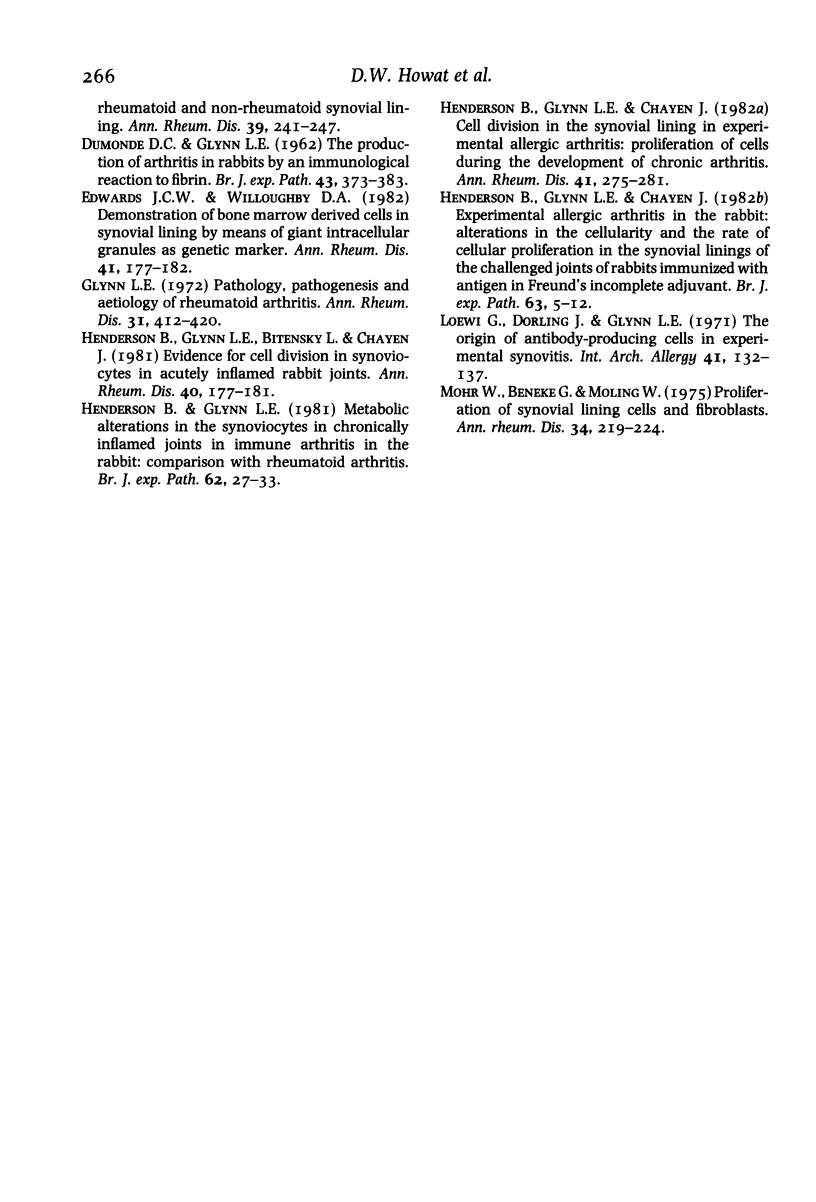
Images in this article
Selected References
These references are in PubMed. This may not be the complete list of references from this article.
- BARLAND P., NOVIKOFF A. B., HAMERMAN D. Electron microscopy of the human synovial membrane. J Cell Biol. 1962 Aug;14:207–220. doi: 10.1083/jcb.14.2.207. [DOI] [PMC free article] [PubMed] [Google Scholar]
- Barratt M. E., Fell H. B., Coombs R. R., Glauert A. M. The pig synovium, II. Some properties of isolated intimal cells. J Anat. 1977 Feb;123(Pt 1):47–66. [PMC free article] [PubMed] [Google Scholar]
- Clarris B. J., Fraser J. R., Moran C. J., Muirden K. D. Rheumatoid synovial cells from intact joints. Morphology, growth, and polykaryocytosis. Ann Rheum Dis. 1977 Aug;36(4):293–301. doi: 10.1136/ard.36.4.293. [DOI] [PMC free article] [PubMed] [Google Scholar]
- Coulton L. A., Henderson B., Bitensky L., Chayen J. DNA synthesis in human rheumatoid and nonrheumatoid synovial lining. Ann Rheum Dis. 1980 Jun;39(3):241–247. doi: 10.1136/ard.39.3.241. [DOI] [PMC free article] [PubMed] [Google Scholar]
- Edwards J. C., Willoughby D. A. Demonstration of bone marrow derived cells in synovial lining by means of giant intracellular granules as genetic markers. Ann Rheum Dis. 1982 Apr;41(2):177–182. doi: 10.1136/ard.41.2.177. [DOI] [PMC free article] [PubMed] [Google Scholar]
- Glynn L. E. Pathology, pathogenesis, and aetiology of rheumatoid arthritis. Ann Rheum Dis. 1972 Sep;31(5):412–420. doi: 10.1136/ard.31.5.412. [DOI] [PMC free article] [PubMed] [Google Scholar]
- Henderson B., Glynn L. E., Bitensky L., Chayen J. Evidence for cell division in synoviocytes in acutely inflamed rabbit joints. Ann Rheum Dis. 1981 Apr;40(2):177–181. doi: 10.1136/ard.40.2.177. [DOI] [PMC free article] [PubMed] [Google Scholar]
- Henderson B., Glynn L. E., Chayen J. Experimental allergic arthritis in the rabbit: alterations in the cellularity and the rate of cellular proliferation in the synovial linings of the challenged joints of rabbits immunized with antigen in Freund's incomplete adjuvant. Br J Exp Pathol. 1982 Feb;63(1):5–12. [PMC free article] [PubMed] [Google Scholar]
- Henderson B., Glynn L. E. Metabolic alterations in the synoviocytes in chronically inflamed knee joints in immune arthritis in the rabbit: comparison with rheumatoid arthritis. Br J Exp Pathol. 1981 Feb;62(1):27–33. [PMC free article] [PubMed] [Google Scholar]
- Loewi G., Dorling J., Glynn L. E. The origin of antibody-producing cells in experimental synovitis. Int Arch Allergy Appl Immunol. 1971;41(1):132–137. doi: 10.1159/000230502. [DOI] [PubMed] [Google Scholar]



